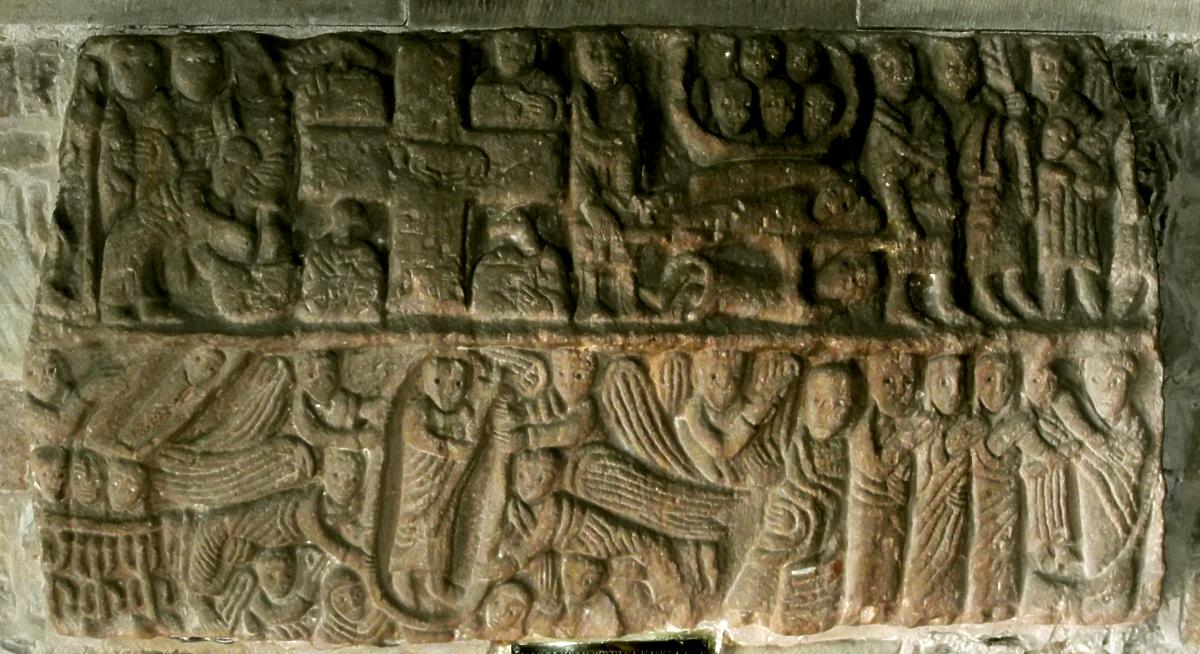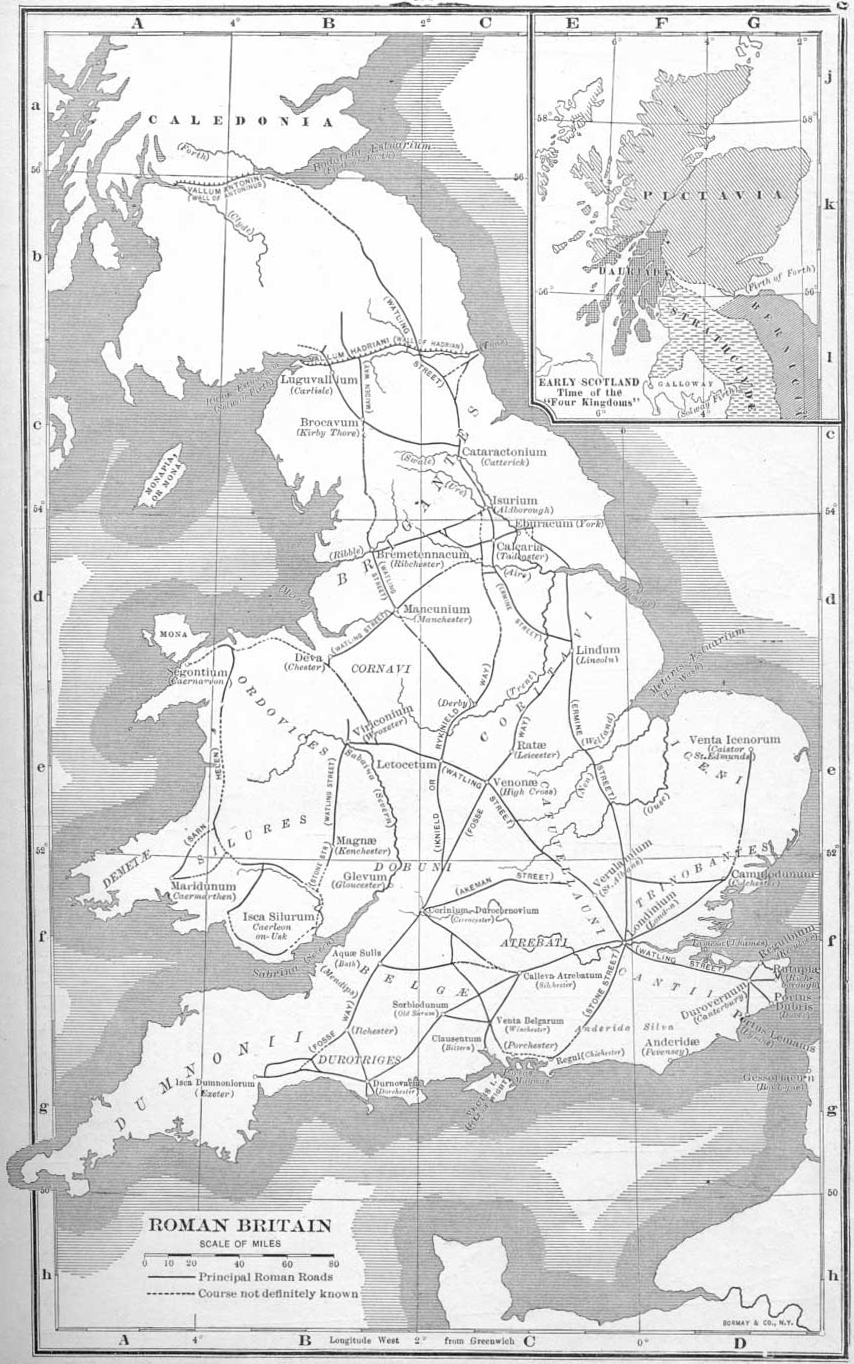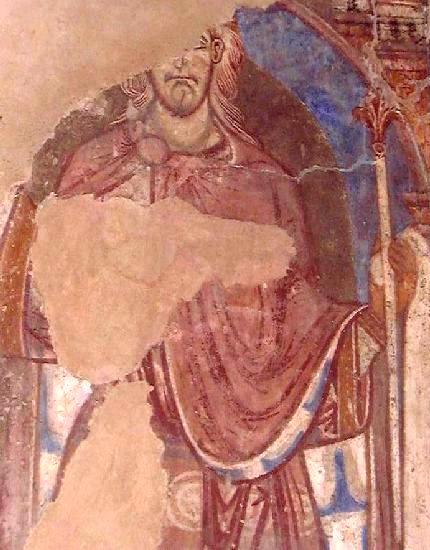|
Urbs Iudeu
Urbs Iudeu (Urbs Judeu/Ludeu) was a city, whose location is now unknown, which according to the ninth-century ''Historia Brittonum'' was besieged in 655 AD by Penda, King of Mercia, and Cadafael, King of Gwynedd. The siege can be seen as an important episode in a long-running war between Mercia and Northumbria in the years 616–679. This war was fought in the area north of the River Trent, in particular in and around the Peak District (Wirksworth) also around Heathfield (Doncaster), Elmet (Aberford) and Lindsey (Lincoln), as these were provinces of Northumbria at the time. Place and location The etymology of the name ''Urbs Iudeu'' is uncertain, as is its location; this difficulty is compounded by the fact that the place-names of other locations mentioned in relation to the siege also cause interpretative problems. A geographical survey of Britain in the eighth-century ''Ecclesiastical History of the English People'' by Bede mentions a place called ''urbs Giudi'' ("the town of ' ... [...More Info...] [...Related Items...] OR: [Wikipedia] [Google] [Baidu] |
Historia Brittonum
''The History of the Britons'' () is a purported history of early Britain written around 828 that survives in numerous recensions from after the 11th century. The ''Historia Brittonum'' is commonly attributed to Nennius, as some recensions have a preface written in that name. Some experts have dismissed the Nennian preface as a late forgery and argued that the work was actually an anonymous compilation. Overview The ''Historia Brittonum'' describes the supposed settlement of Britain by Trojan settlers and says that Britain was named for Brutus, a descendant of Aeneas. The "single most important source used by Geoffrey of Monmouth in his pseudohistorical ''Historia Regum Britanniae''" and through the enormous popularity of the latter work, this version of the early history of Britain, including the Trojan origin tradition, was incorporated into subsequent chronicles of the long-running history of the land, such as the Middle English '' Brut of England'', also known as ' ... [...More Info...] [...Related Items...] OR: [Wikipedia] [Google] [Baidu] |
Ryknield Street
Icknield Street or Ryknild Street is a Roman road in England, with a route roughly south-west to north-east. It runs from the Fosse Way at Bourton on the Water in Gloucestershire () to Templeborough in South Yorkshire (). It passes through Alcester, Studley, Redditch, Metchley Fort, Birmingham, Sutton Coldfield, Lichfield, Burton upon Trent and Derby. Names Four Roman roads having the King's protection are named in the Laws of Edward the Confessor: Watling Street, Ermine Street, the Fosse Way, and Hikenild or Icknield Street. Hikenild Strete is generally supposed to be connected with the country of the Iceni. Various forms of the name (the earliest in Anglo-Saxon charters are Icenhilde Weg or Icenilde Weg) designate other roads from the borders of Norfolk through Cambridgeshire, Bucks, Berks, Hants and Wilts into Dorset. These locations, however, would identify the route as Icknield Way an Iron Age trackway running from Norfolk to Dorset. What is today referred to as the I ... [...More Info...] [...Related Items...] OR: [Wikipedia] [Google] [Baidu] |
Ecgfrith Of Northumbria
Ecgfrith (; ; 64520 May 685) was the King of Northumbria from 670 until his death on 20 May 685. He ruled over Northumbria when it was at the height of its power, but his reign ended with a disastrous defeat at the Battle of Nechtansmere against the Picts of Fortriu in which he lost his life. Early life Ecgfrith was born in 645 or less likely 646 to king Oswiu of Northumbria and his wife Eanflæd. At about the age of 10, Ecgfrith was held as a hostage at the court of Queen Cynewise, wife of King Penda of Mercia. Penda was eventually defeated and killed in the Battle of the Winwaed by Oswiu, a victory which greatly enhanced Northumbrian power. To secure his hegemony over other English kingdoms Oswiu arranged a marriage between Ecgfrith and Æthelthryth, a daughter of Anna of East Anglia. King of Northumbria In 671, Ecgfrith defeated the Picts at the Battle of Two Rivers, and as a result in the Northumbrians took control of Pictland for the next fourteen years. Around the sa ... [...More Info...] [...Related Items...] OR: [Wikipedia] [Google] [Baidu] |
Wulfhere Of Mercia
Wulfhere or Wulfar (died 675) was King of Mercia from 658 until 675 AD. He was the first Christian king of all of Mercia, though it is not known when or how he converted from Anglo-Saxon paganism. His accession marked the end of Oswiu of Northumbria's overlordship of southern England, and Wulfhere extended his influence over much of that region. His campaigns against the West Saxons led to Mercian Supremacy, Mercian control of much of the Thames valley. He conquered the Isle of Wight and the River Meon, Meon valley and gave them to King Æthelwealh of Sussex, Æthelwealh of the South Saxons. He also had influence in Surrey, Kingdom of Essex, Essex, and Kingdom of Kent, Kent. He married Ermenilda of Ely, Eormenhild, the daughter of King Eorcenberht of Kent. Wulfhere's father, Penda of Mercia, Penda, was killed in 655 at the Battle of Winwaed, fighting against Oswiu of Northumbria. Penda's son Peada of Mercia, Peada became king under Oswiu's overlordship but was murdered six mont ... [...More Info...] [...Related Items...] OR: [Wikipedia] [Google] [Baidu] |
Battle Of The Winwaed
The Battle of the Winwaed ( Welsh: ''Maes Gai''; ) was fought on 15 November 655 between King Penda of Mercia and Oswiu of Bernicia, ending in the Mercians' defeat and Penda's death. According to Bede, the battle marked the effective demise of Anglo-Saxon paganism. Background The roots of the battle lay in Penda's success in dominating England through a number of military victories, most significantly over the previously dominant Northumbrians. In alliance with Cadwallon ap Cadfan of Gwynedd he had defeated and killed Edwin of Northumbria at Hatfield Chase in 633, and subsequently he defeated and killed Oswald of Northumbria at the Battle of Maserfield in 642. Maserfield effectively marked the overthrow of Northumbrian supremacy, and in the years that followed the Mercians apparently campaigned into Bernicia, besieging Bamburgh at one point; the Northumbrian sub-kingdom of Deira supported Penda during his 655 invasion. Toponymy, location, and date Since the ninet ... [...More Info...] [...Related Items...] OR: [Wikipedia] [Google] [Baidu] |
Cadafael Cadomedd Ap Cynfeddw
Cadafael ( or ; meaning "Cadafael, son of Cynfedd") was List of rulers of Gwynedd, King of Gwynedd (reigned 634 – c. 655). He came to the throne when his predecessor, King Cadwallon ap Cadfan, was killed in battle, and his primary notability is in having gained the disrespectful sobriquet ''Cadafael Cadomedd'' (fully translated into ). Unusual for the era, King Cadafael was not a member of one of the leading families of Gwynedd. His name appears in the ''Welsh Triads'' as one of the ''"Three kings, who were of the sons of strangers"'' (sometimes referred to as the ''"Three Peasant Kings"''), where he is identified as "Cadafael, son of Cynfeddw in Gwynedd". Cadafael's reign was a critical time for the future of the ''Cymry'' (i.e., the Welsh and the Brittonic languages, Brythonic "Men of the North" taken together, exclusive of all others). There was an alliance of the ''Cymry'' with Penda of Mercia initially forged by Cadwallon ap Cadfan, and there was ongoing warfare against t ... [...More Info...] [...Related Items...] OR: [Wikipedia] [Google] [Baidu] |
Oswiu
Oswiu, also known as Oswy or Oswig (; c. 612 – 15 February 670), was King of Bernicia from 642 and of Northumbria from 654 until his death. He is notable for his role at the Synod of Whitby in 664, which ultimately brought the church in Northumbria into conformity with the wider Catholic Church. One of the sons of Æthelfrith of Bernicia and Acha of Deira, Oswiu became king following the death of his brother Oswald in 642. Unlike Oswald, Oswiu struggled to exert authority over Deira, the other constituent kingdom of medieval Northumbria, for much of his reign. Oswiu and his brothers were raised in exile in the Irish kingdom of Dál Riata in present-day Scotland after their father's death at the hands of Edwin of Northumbria (not by Edwin but possibly by Rædwald and his son Rægenhere at the Battle of the River Idle) only returning after Edwin's death in 633. Oswiu rose to the kingship when his brother Oswald was killed in battle against Penda of Mercia. The early part of ... [...More Info...] [...Related Items...] OR: [Wikipedia] [Google] [Baidu] |
Aberford Dykes
The Aberford Dykes are a series of archaeological monuments located around the valley of the Cock Beck, where it runs just north of the village of Aberford on the border between North and West Yorkshire, England. The complex consists of three individual earthworks: Becca Banks/the Ridge, the South Dyke, and Woodhouse Moor Rein. History The date and function of the Aberford Dykes are not known for sure. It seems likely that the monuments were built at different times, and possibly for different purposes. Becca Banks/the Ridge has a strongly defensive nature, and may have been built to control a ford over the Cock Beck. Becca Banks/the Ridge runs across the Roman road between Castleford and Tadcaster. However the sequential relationship between the earthwork and the Roman road is not known. Some suggest the monument was built to defend against a Roman invasion and the road was later built right through it. Earlier writers thought the monument was built to protect the road, possi ... [...More Info...] [...Related Items...] OR: [Wikipedia] [Google] [Baidu] |
Oswald Of Northumbria
Oswald (; c 604 – 5 August 641/642Bede gives the year of Oswald's death as 642. However there is some question of whether what Bede considered 642 is the same as what would now be considered 642. R. L. Poole (''Studies in Chronology and History'', 1934) put forward the theory that Bede's years began in September, and if this theory is followed (as it was, for instance, by Frank Stenton in his notable history ''Anglo-Saxon England'', first published in 1943), then the date of the Battle of Heavenfield (and the beginning of Oswald's reign) is pushed back from 634 to 633. Thus, if Oswald subsequently reigned for eight years, he would have actually been killed in 641. Poole's theory has been contested, however, and arguments have been made that Bede began his year on 25 December or 1 January, in which case Bede's years would be accurate as he gives them.) was List of monarchs of Northumbria, King of Northumbria from 634 until his death, and is venerated as a saint, of whom ther ... [...More Info...] [...Related Items...] OR: [Wikipedia] [Google] [Baidu] |
Battle Of Maserfield
The Battle of Maserfield, () was fought on 5 August 641 or 642 (642 according to Ward) between the Anglo-Saxon kings Oswald of Northumbria and Penda of Mercia allied with Welsh Kingdom of Gwynedd, ending in Oswald's defeat, death, and dismemberment. The location was also known as ''Cogwy'' in Welsh, with Welshmen from Pengwern participating in the battle (according to the probably ninth-century '' Canu Heledd''), probably as allies of the Mercians. Bede reports the commonly accepted date given above; the Welsh ''Annales Cambriae'' is generally considered incorrect in giving the year of the battle as 644. The site of the battle is traditionally identified with Oswestry. Background "Since the death of Oswald's uncle Edwin of Northumbria at Hatfield Chase in 633, the Mercians under Penda had presented an obstacle to the power of Northumbria over the lands of Britain south of the Humber. Oswald had defeated Cadwallon ap Cadfan of Gwynedd, King of the Britons (Penda's ally ... [...More Info...] [...Related Items...] OR: [Wikipedia] [Google] [Baidu] |
The Wirksworth Stone
''The'' is a grammatical article in English, denoting nouns that are already or about to be mentioned, under discussion, implied or otherwise presumed familiar to listeners, readers, or speakers. It is the definite article in English. ''The'' is the most frequently used word in the English language; studies and analyses of texts have found it to account for seven percent of all printed English-language words. It is derived from gendered articles in Old English which combined in Middle English and now has a single form used with nouns of any gender. The word can be used with both singular and plural nouns, and with a noun that starts with any letter. This is different from many other languages, which have different forms of the definite article for different genders or numbers. Pronunciation In most dialects, "the" is pronounced as (with the voiced dental fricative followed by a schwa) when followed by a consonant sound, and as (homophone of the archaic pronoun ''thee'') ... [...More Info...] [...Related Items...] OR: [Wikipedia] [Google] [Baidu] |
Edwin Of Northumbria
Edwin (; c. 586 – 12 October 632/633), also known as Eadwine or Æduinus, was the King of Deira and Bernicia – which later became known as Northumbria – from around 616 until his death. He was the second monarch to rule both of these northern English kingdoms and the first to convert to Christianity. After he died in battle, he was venerated as a saint. Edwin was the son of Ælle, the first known king of Deira, and likely had at least two siblings. His sister Acha was married to Æthelfrith, king of neighbouring Bernicia. Edwin was forced into exile when Æthelfrith conquered Deira. His travels took him to the court of Rædwald of East Anglia, who defeated Æthelfrith in 616, allowing Edwin to ascend the thrones of Bernicia and Deira. After the death of his patron Rædwald around 624, Edwin became the most powerful ruler in Britain. Bede the Venerable includes him in his list of kings who exercised imperium over other Anglo-Saxon monarchs, and the ''A ... [...More Info...] [...Related Items...] OR: [Wikipedia] [Google] [Baidu] |






